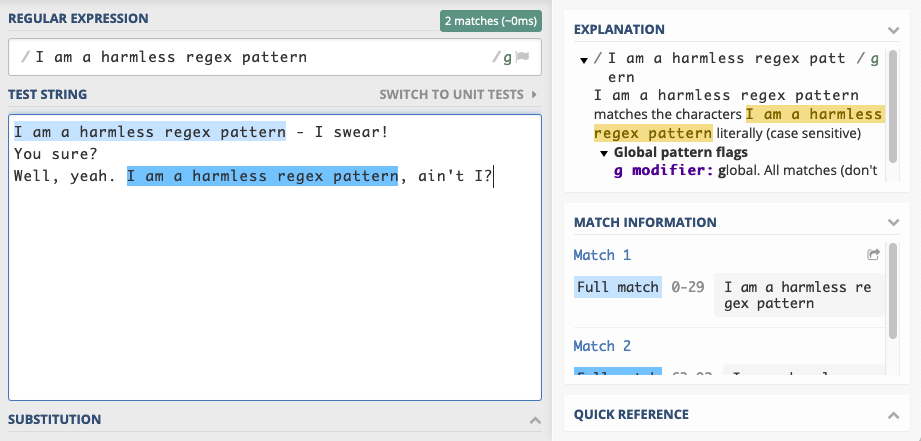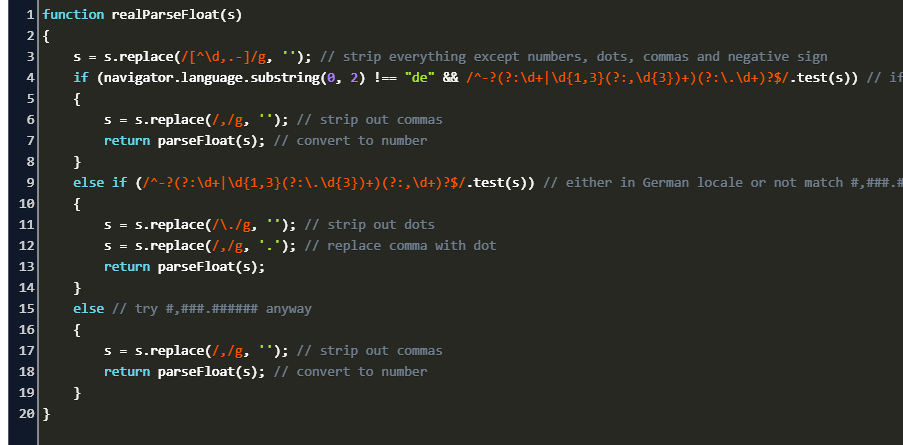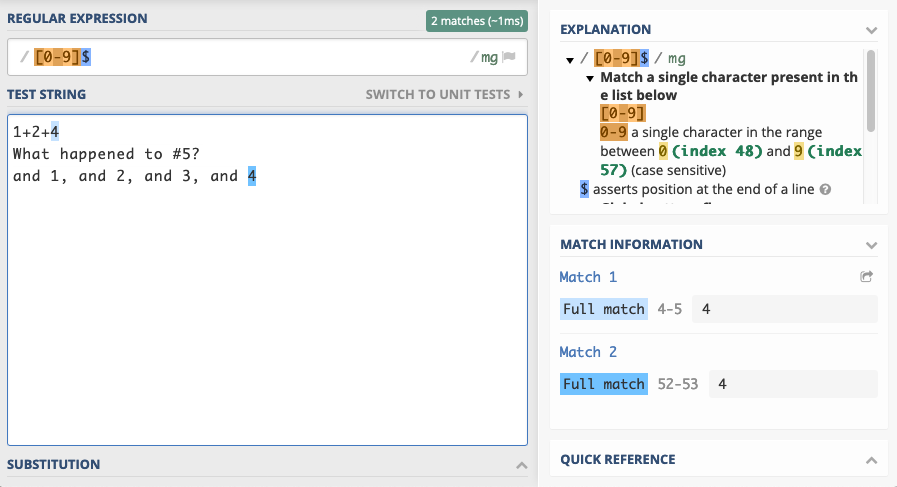

There are a few exceptions though: x can be either string repetition or list repetition, depending on the type of the left operand, and &, |, ^ and ~ can be either string or numeric bit operations. For example $x = $y compares two numbers for equality, and $x eq $y compares two strings. It also means that Perl has two versions of some operators, one for numeric and one for string comparison. This is in contrast to many other dynamic languages, where the operation is determined by the type of the first argument. For example $x + $y is always a numeric addition, and if $x or $y do not contain numbers, an attempt is made to convert them to numbers first. In Perl, the operator determines what operation is performed, independent of the type of the operands. Perlop - Perl operators and precedence #DESCRIPTION

The expression excludes any character between a and i from the search result. The expression + matches the sequence def in the string abcdef, but not a, b, or c. The expression matches the character d in the string abcdef, but not the character a, b, or c. Refer to the description of the Matching Character List operator for an account of metacharacters allowed in the character list. Characters not in the non-matching character list are returned as a match. Matches any single character not in the list within the brackets. The expression matches the first character in the strings all, bill, and cold, but does not match any characters in doll. In Oracle Database, the linguistic range is determined by the NLS_SORT initialization parameter. Thus, ranges are linguistic rather than byte values ranges the semantics of the range expression are independent of character set.

Note: In the POSIX standard, a range includes all collation elements between the start and end of the range in the linguistic definition of the current locale. A right bracket ( ]) is treated as a literal if it occurs first in the list. The following operators are allowed within the list, but other metacharacters included are treated as literals:Ī dash ( -) is a literal when it occurs first or last in the list, or as an ending range point in a range expression, as in. Matches any single character in the list within the brackets. matches the strings aaa, aaaa, and aaaaa, but does not match aa. Previously, finding a match for a protein sequence such as. For example, life science customers often rely on Perl to do pattern analysis on bioinformatics data stored in huge databases of DNAs and proteins. This technique is useful for the following reasons:īy centralizing match logic in Oracle Database, you avoid intensive string processing of SQL results sets by middle-tier applications. Oracle's support of regular expressions enables developers to implement complex match logic in the database. One reason that many developers write in Perl is for its robust pattern matching functionality. For example, a Perl script can process each HTML file in a directory, read its contents into a scalar variable as a single string, and then use regular expressions to search for URLs in the string. Regular expressions are a powerful text processing component of programming languages such as Perl and Java.

How Are Oracle Database Regular Expressions Useful? Thus, the preceding regular expression matches the http:, https:, ftp:, and ftps: strings. The question mark ( ?) is a metacharacter indicating that the preceding pattern, in this case the s character, is optional.
#REGEX FOR NUMBER WITH COMMAS DOTS AND PARENTHESES SERIES#
The parentheses are metacharacters that group a series of pattern elements to a single element the pipe symbol ( |) matches one of the alternatives in the group. For example, the following regular expression searches for the literals f or ht, the t literal, the p literal optionally followed by the s literal, and finally the colon ( :) literal: Literals, which are the characters for which you are searchingĪ regular expression can specify complex patterns of character sequences. Metacharacters, which are operators that specify search algorithms You specify a regular expression by means of the following types of characters: Regular expressions enable you to search for patterns in string data by using standardized syntax conventions.


 0 kommentar(er)
0 kommentar(er)
